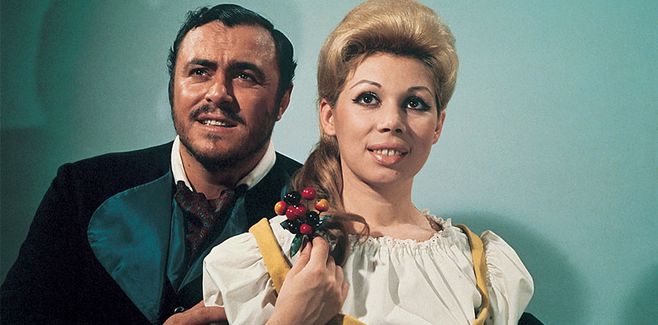Italian prima donna Mirella Freni has passed away Sunday at her home in Modena, in north-central Italy at the age of 84, after a long struggle with illness.
Freni has shine in performances of “Carmen,” “La Boheme” and “The Marriage of Figaro” throughout a 50-year career made her one of the world’s most beloved operatic sopranos.
Jack Mastroianni, the late opera singer's longtime manager, had announced her death, stating that she had “a long degenerative illness and a series of strokes.”
Life and Career
Freni had appeared at the world’s leading opera houses, was sometimes called “the last prima donna.”
Mirella Fregni, known as Mirella Freni, was born on February 27, 1935. She shared the same wet nurse as her childhood friend Italian operatic tenor Luciano Pavarotti with whom she grew up and who was to become a frequent tenor partner on stage.
Freni studied voice with Ettore Campogalliani; She decided to change her name to Mirella Freni, believing that it was easier to pronounce.
She made her operatic debut at the Teatro Municipale in her hometown on March 3, 1955, as Micaëla in Bizet's Carmen.
Freni tied the knot to her teacher, the pianist, and director Leone Magiera. She resumed her career in 1958 in Puccini's La bohème at the Teatro Regio in Turin.
The Italian prima donna made her international breakthrough came at the Glyndebourne Festival, where she appeared as Zerlina in Mozart's Don Giovanni, alongside Joan Sutherland as Donna Anna, and as Adina in Donizetti's L'elisir d'amore, directed by Franco Zeffirelli.
Freni ended her professional career on stage with "The Maid of Orleans" at the Washington National Opera on April 11, 2005, performing the teenager Ioanna at age 70.
She taught master classes after her retirement.
[caption id="" align="aligncenter" width="658"] Luciano Pavarotti and Mirella Freni[/caption]
Luciano Pavarotti and Mirella Freni[/caption]
Legacy
Freni's voice was so vibrant that she continued to sing the roles of youthful ingénues, such as Mimi in Giacomo Puccini’s “La Boheme” and Susanna in Mozart’s “The Marriage of Figaro,” well past the age of 50.
She was considered to be one of the truly great singers of her generation, which witnessed the rise of many renowned sopranos, including Maria Callas, Joan Sutherland, Renata Tebaldi, and Renata Scotto.
In nearly every role she sang, Freni was a level-headed, unpretentious woman who seemed singularly unaffected by her extraordinary acclaim. In a career of fifty years, she mesmerized audiences, colleagues and critics.
She had no enemies as her sovereign charm, directness and sincerity made everyone rejoicing in her success.






